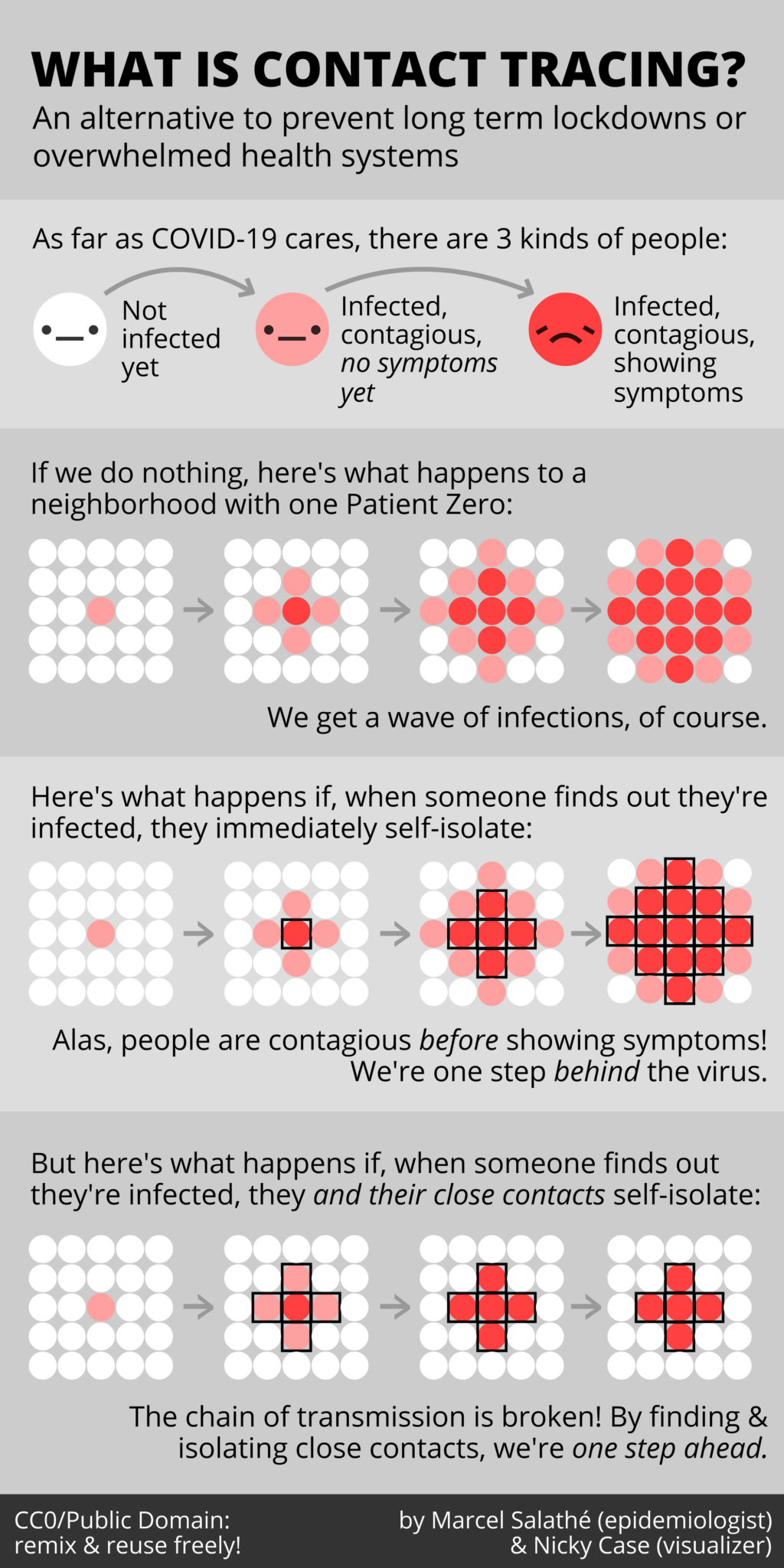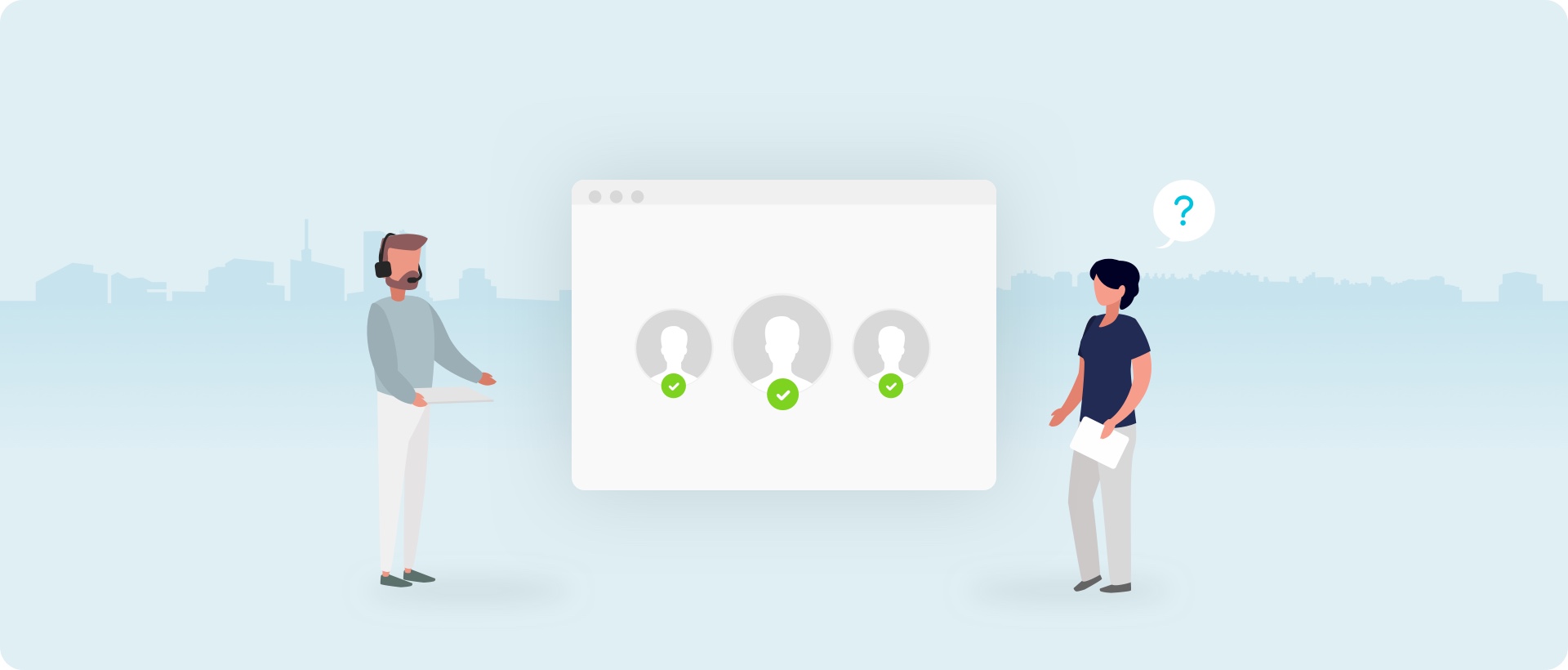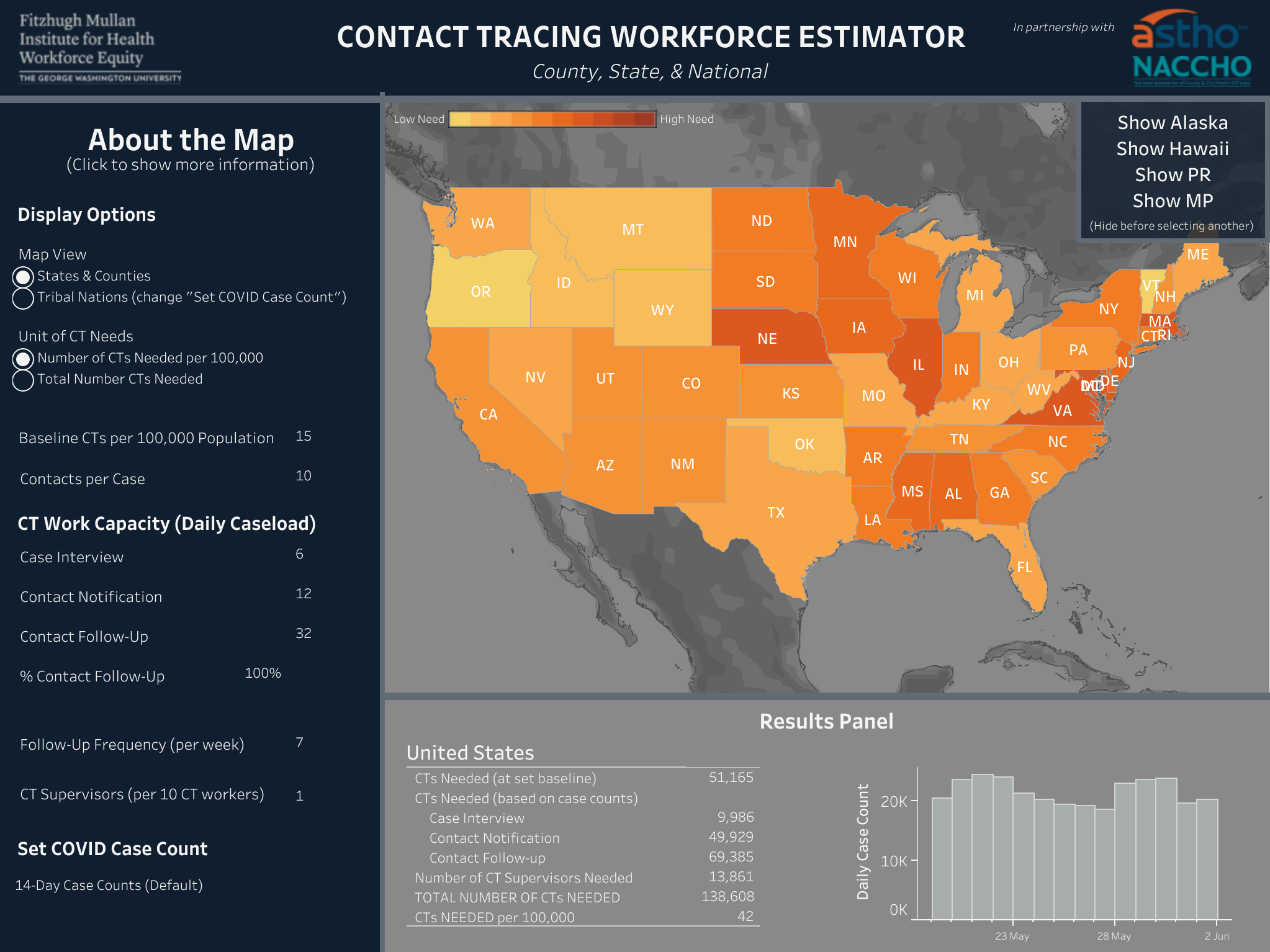More than 30 million people in the US and many more all around the globe have lost their jobs in the recession amid the COVID-19 pandemic or have been furloughed.
Especially if you’ve been working in hospitality, leisure or tourism, you might be asking yourself now: Should I wait for my furlough to end or should I apply for other jobs? Will I ever find a new job?
Fortunately, even in these difficult times, there’s some good news. The need to control the impact of COVID-19 as governments prepare to reopen the economy has led to an increasing demand for one job: contact tracers.
Contact tracing is one of the fastest-growing jobs in the US. It will account for as many as 300,000 new openings in the coming weeks and months and if you’re one of those people exploring options for a new job, contact tracing may be a lifesaver.
So what exactly do contract tracers do and what skills and competencies do you need to have to get hired for the role?
Keep reading!
What’s in?
What do contact tracers do?
Containing the coronavirus as the economy gradually reopens has created an urgent need for contact tracers to identify infected individuals. COVID-19 contact tracers track down those that may have been exposed to the virus, provide disease and transmission information, as well as collect relevant data on demographics, living arrangements, daily activities, symptoms, and underlying medical conditions.
Contact tracing is not a new job. They have been around for some time, helping minimize the spread of sexually transmitted infections, tuberculosis, and other dangerous diseases. According to the Association of State and Territorial Health Officials, there were about 2,200 contact tracers for the whole US before the COVID-19 outbreak.
Unlike contact tracers in previous infectious disease outbreaks who went door-to-door collecting information, COVID-19 contact tracers conduct their interviews by phone and do research online. Many contact tracers work remotely.
What does a day in the life of a contact tracer look like?
Working as a contact tracer, your day consists of various tasks. Here are some of them:
- Making phone calls to people who have been (potentially) exposed to COVID-19
- Talking with people who are in various states of mind – they might be crying, yelling, confused, and/or sick
- Searching through social media and different databases
- Looking at GPS data to show where a person has been
- Linking names and information, analyzing data and building a list of who to contact
In general, you need to do a lot of detective work uncovering connections between individuals through communicating with a lot of different people and working with various types of data.
How much do contact tracers make?
Contact tracers can earn up to $65,000 per year. The average salary is between $17-$25 an hour.

This is how contact tracing helps contain the spread of the virus.
What skills do you need to become a contact tracer?
Contact tracers for infectious diseases are usually people with a background in public health or healthcare. Such education or experience is not necessary for COVID-19 contact tracers.
However, you do need to have some specific contact tracing skills and competencies to succeed in the role. Many of them are transferable skills that are useful across different industries.
Let’s have a closer look at these.
Communication and interpersonal skills
As we’ve already alluded to, working as a contact tracer involves a lot of communication with different people. That’s why strong communication skills are indispensable for the contact tracer role.
You should be adept at effective oral and written communication. As you will be talking to individuals with diverse backgrounds and in different situations, you need to be able to adapt your communication style accordingly.
For example, you might have to convince a person who is already angry because they lost their job that they need to self-quarantine for two weeks. You would need to employ a different communication strategy than when you’re interacting with a sick, tired person and you have to find out details of where they went and who they could have infected.
In general, you need to make sure that you’re getting your point across to the people you’re speaking to and that your message is clear enough to be understood.
Persuasiveness
Besides being an effective communicator, you also need to be persuasive to be a successful contact tracer. You often have to speak with people who are unwilling to answer questions, give you information, or comply with the quarantine rules.
And you have to get them to open up to you about every detail of their lives and persuade them to cooperate and do what you’re asking from them.
People with good persuasion skills are not pushy or confrontational, instead, they develop a rapport with people who they talk to. Rather than being overbearing, persuasive people are active listeners, they ask a lot of questions and acknowledge the other side’s point of view.
While you will be trained in persuasion techniques during your onboarding, it is useful to have basic persuasion skills when you’re applying for a contact tracer role.
Click on the image to view the interactive version of the Contact Tracing Workforce Estimator. You can see contact tracer need per US state.
Empathy and cultural competence
When you’re in daily contact with people who (might) have contracted an infectious disease, you need to be, above all, empathetic. These people will have a wide range of feelings – from anger and being wronged to fear and helplessness.
As a COVID-19 contact tracer, you need to be good at anticipating what the person that you’re talking to feels like and make them feel comfortable and at ease. During a conversation, you focus on building trust and you’re patient. That’s how you gain valuable insights and information you’re looking for.
Essentially, high levels of empathy make you a suitable candidate for a contact tracer role.
Next to communicating with people in various moods, you should also be prepared to interact with people from different cultures and socioeconomic backgrounds when conducting your contact tracing research. Doing so effectively, objectively and without judgement requires being culturally competent.
On an individual level, cultural competence encompasses the ability to interact and develop relationships with people from cultures or belief systems that differ from your own. In a contact tracer role, it is important that you’re aware of demographic and cultural factors that can impact health and can apply these skills in your daily contact with people.
Organizational skills
Working as a contact tracer involves extensive data management, working with comprehensive information and documentation from case interviews. You also need to track and follow multiple cases through to completion. At the same time, you should be able to look for improvements and implement adjustments to the case follow-up process.
That’s why you need strong organizational skills in a contact tracer job.
Having these skills allows you to effectively prioritize tasks, stay focused and productive, track your progress, and ensure that you’re on your way to achieve your goals. The contact tracer role comprises diverse tasks and is often remote. That’s why you need to be good at organizing and planning your work independently, identifying potential roadblocks ahead, and performing your tasks according to a schedule.
Critical thinking
Contact tracing is often likened to detective work. Your goal is to get to the bottom of each case, meaning that you ask the right questions and assess the information you’ve collected to successfully track all the people potentially exposed to the virus.
In your daily work, you’re expected to evaluate information from various sources, understand connections, and make decisions who to contact next based on it. You need to apply a great deal of critical thinking to your day to day activities, that’s why good critical thinking skills are imperative for contact tracers.
Furthermore, you should have natural curiosity and inquisitiveness to thrive in the contact tracer role. Uncovering the details of every case often means having to think outside the box to gain a new perspective on the problem. You consider different ways and methods to achieve the desired outcome.
Just like a detective’s job, your role involves obtaining and analyzing information and facts, the ability to distinguish between useful and less useful details, and drawing thoughtful conclusions. This would not be possible without solid critical thinking skills.
Strong work ethic
When doing contact tracing for an infectious disease like COVID-19, time is of the essence. For that reason, contact tracers often have to work in shifts, in the evenings and on the weekends. And as we’ve already mentioned, the work is often remote.
It requires a strong work ethic to be a contact tracer. Work ethic is much more than the willingness to work in shifts. It is essentially your readiness to perform your job to the best of your ability and the moral principles that you use to guide you in your work life.
Contact tracing is a job where people’s health and even life potentially depend on how well you perform. At the same time, it is a role in which you’ll encounter many hurdles such as negative emotions or lack of information. You need to be resilient and respond and act professionally even in stressful and difficult situations.
That’s the reason why upholding work ethic principles in all situations, your positive attitude, and dedication to go the extra mile are key to succeeding as a contact tracer.
Confidentiality
As a COVID-19 contact tracer, you gather and work with personal and confidential information like their health status or financial situation. It is vital that you can handle this data with discretion and professionalism regardless of who you’re talking to.
People are often unwilling to answer questions that they consider personal and intrusive. And it’s up to you to convince them of your trustworthiness and that you will handle their data with care.
Other skills
There are other skills, competencies, and experience that are useful for working as a contact tracer:
- Computer proficiency
- Interview skills
- Experience in database management
- Additional languages
A final word
Whether you’ve lost your job amid the COVID-19 pandemic or you’re considering a career change, contact tracing is definitely a role to look into.
Start by doing a virtual job tryout to learn about the details of the role, build your contact tracer profile and get your profile in front of organizations hiring contact tracers all in one place, ContactTracers.com!


